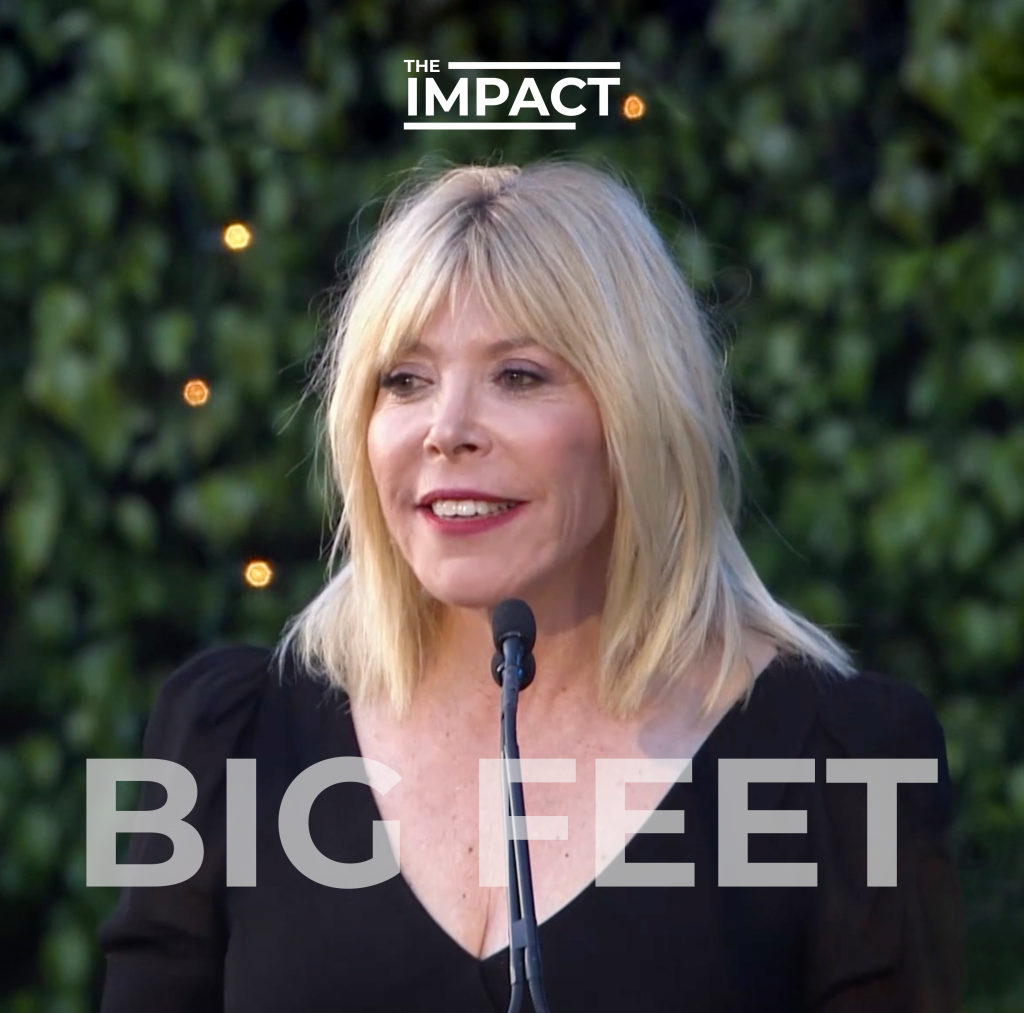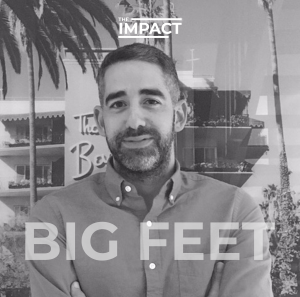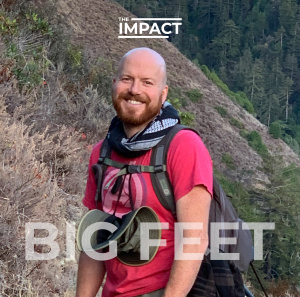Debbie Levin 0:00
We are in a very unique time in the history of Earth, that everybody is connected in a way through social media. And so it’s really it’s really powerful to be a human being right now and to have your voice heard, and also your insights and also your mistakes, you know, and and your process. And I think that’s important to
Debbie Levin 0:23
know, it’s not gonna be perfect. We’re not going to be carbon neutral immediately. But it’s it’s small steps in talking about it.
Debbie Levin 0:30
No one’s perfect. No one’s perfect. No one’s perfect. So
Ian Sumner 0:35
we got to start somewhere. Yes. If you’re celebrating, you’re listening at me on Twitter, but for the rest of us, what can we do to spread the good word of sustainability and save our planet? To help me with that?
Debbie Levin 0:54
Can you introduce yourself and tell us a little bit about what you guys do?
Debbie Levin 0:59
I am Debbie Levin. I’m the CEO of the environmental media Association. We are a nonprofit 501 c three organization. And we’re celebrating our 30th anniversary this year, which is crazy. I’ve been running the organization for 20 years and over 20 years, and our mission is to be the storytellers for the environment. The way we do that is we utilize the entertainment industry with content. We created the green carpet, we utilize the the talent, we’re talking about everyone from Sir Richard Branson, Elon Musk to Jaden Smith, Matt Damon Natalie Portman, and we’re the ones that help message environmental issues, lifestyle behaviors, personal empowerment, everything that has to do with living a sustainable lifestyle. And again, as I said, we’ve been doing this for 30 years, which is really amazing. We have a huge voice We are the only organization globally whose mission It is really to tell the story. Because if you think about it, it’s very hard for a company for a politician for an educator, they actually don’t know how to link what we’re dealing with environmentally, with being able to speak to this to to everyone in sort of a pop culture language. And we are able to speak to what people are passionate about and interested in doing behavior change in a way that really resonates for the individual.
Debbie Levin 2:34
What do you see as the role of celebrities then in the climate movement in pop culture language you were talking about? Like, why is it effective in changing people’s behavior?
Debbie Levin 2:45
You know, listening to celebrities and, and making people understand that they’re their people. They’ve got kids, they’ve got relationships, they’ve got problems, they’ve got houses. I mean, now more than ever, they’re also staying home. We’re in the middle of this crazy pandemic, and they’re doing what we’re doing. They’re, you know, they’re trying to make sure that their kids are learning in school, you know, at home, they’re becoming teachers like, like the rest of us. They are taking care of their families. They’re trying to figure things out. And in terms of a, an ongoing sustainability message, I think that that this is a way to reach vast audiences in a really relatable way. So we’re sort of behind that red carpet in a sense, in that we have our celebrities are speaking in a way that really relates to the general public globally. I don’t think that this works for every issue. I’ll be honest, I’m not sure that it’s completely efficient for a political party, or for some things that may seem too aspirational, but for a sustainable lifestyle. I think that we’re using celebrities and influencers to be able to speak to their incredibly huge and always growing followers and fans has been so effective for all these years I mean we’ve been behind so many big behavioral changes we helped launch the Prius in 2001 for example, and hybrid and alternative fuel cars in the automotive industry has touched everyone at this point every different company is now doing it because we were we were very instrumental in making the Prius a sexy car and having the celebrities buy it and and and drive and arrive at award shows and priuses was huge for changing the way the the global consumer really thought about transportation and and what made a car compelling. So as well as with the with the food industry and and making people understand that reading labels is really really important.
Debbie Levin 4:58
Gotcha. So it’s sort of if people are able to see the behavior that you want to be encouraging and their favorite celebrities are doing it, then they’re able to sort of learn from it without having it sort of forced down their throat kind of right. You know, is that well, yeah,
Debbie Levin 5:14
and the other thing is going going on the journey together because nobody is there. Nobody is anywhere. And so we’re all in process our most sustainable celebrities still have practices or things that they need to do that are that are not perfect, we’re not perfect. And I think showing and being in process with with everybody is so important. It’s it really humanizes and and gets everybody into, we’re all we’re all the same. We’re all just trying to make the best out of whatever our life has, you know, the path that we’ve chosen is and again, now more than ever, where so much of the world is quarantined are nervous, and you know, and we’ve got a health scare. That’s global What does everybody really worried about they’re worried about their families well, that links to sustainability as well. Because ultimately sustainability is has a huge impact on health and and what we do within our own lives, to be able to protect not only our planet, but also our families. And that means knowing what we eat, knowing what we put on our bodies, knowing what we clean our homes with. All of this all of our choices have a huge effect on our everyday lives, as well as sustaining the natural resources of our planet.
Debbie Levin 6:39
What are some companies just not understanding about sustainability and stuff that you guys you guys get? Right? Like why isn’t everyone doing this? Right? Who’s kind of what I guess everybody kind of gets to?
Debbie Levin 6:48
Well, I mean, I think things will change because the world is shifting a bit, but people are a lot of a lot of companies are getting it. So many companies have Sustainability mandate that now in the last few years have never had this before. And but always it’s always about making money and and being able to maintain corporations and businesses. And so what a lot of companies don’t understand is that sustainability can actually improve your bottom line because there’s always a cost saving when you do something more sustainably. costs have definitely come down in the last 20 years that I’ve been doing this. I mean, just think about you just went to the market for your family, and you bought a bunch of stuff. And I’m assuming that you bought really healthy good organic stuff. If you had done that 810 years ago, it would have cost you more than it did now. Because the democratization of of having the availability in big box stores and the demand from the consumer for more for more transparent whether it’s food or whether it’s cleaning products or whatever we’re talking about, has become so huge, that the companies that are more sustainable are becoming so much more successful, and that the larger conglomerates are buying the, the the brands that are sustainable, and they’re able to have the same shelf space, so to speak. So, I do believe that companies, you know, all things being equal, they definitely want to be more sustainable and move towards a circular economy. But at the end of the day, they have to pay their bills just like we do. And we really respect that and honor that. And we look at companies in the same way that we look at people because everybody, I mean, companies are people, and they have families, and they’re not going to want to endanger their families by not bringing something healthy home and not really being aware of options. But there is an economy that we’re that we’re you know having struggling with right now. Because everybody You know, the the world revolves around people buying stuff. And when you buy stuff and support the companies that are sustainable, then every individual has an opportunity to change the way the world looks.
Debbie Levin 9:15
Make sense? And I guess, I guess it makes sense. It was the, you know, reducing and reusing aspects of the of the cycle. those are those are inherently you’re going to in the long run, hopefully save costs, right?
Debbie Levin 9:28
Yes.
Debbie Levin 9:30
So I guess part of you know, getting people to read labels, getting people to change their habits. So I’m really enjoying becoming more sustainable, and living a more sustainable lifestyle. And I also really love storytelling, but I’m not a celebrity or anything like that, right. So what can the normal person be doing as far as taking you know some of the skills that you’ve or some of what you guys do with like, Sustainable storytelling and stuff like that. Like, how can we take that into our own lives in our own communities?
Debbie Levin 10:07
Well, do you have friends?
Ian Sumner 10:10
I have a couple.
Debbie Levin
Do you have any kind of network or social, you know, group?
Ian Sumner
Yeah!
Debbie Levin
And do you have any followers on any of your platforms?
Ian Sumner
You know, one or two,
Debbie Levin
So you represent everybody that’s listening right now. So everybody that’s listening, hopefully knows a few people. When you share your ideas, they know people and think about how exponentially that grows. You don’t have to be Jaden Smith with 40 million followers like we have on our board. What you can be is, you know, just somebody who really, really cares, speaks to it on your social media, gives your own tips, tells your friends and you become inspiring and doing it in a way that everybody relates to. And so every single person definitely has the power to communicate. And we are in a very unique time in the history of Earth, that everybody is connected in a way through social media that, you know, literally, even 10 years ago, this wasn’t even an aspiration. And so now, I mean, you can be in fourth grade and have it have a whole social network that’s going on. And your little nine year old self or 10 year old self is communicating to, you know, multiples of people every day, what your opinion is, and so, it’s really it’s really powerful to be a human being right now and to have your voice heard, and whether it’s heard in your community or whether it’s heard through millions of people because you’re some you’re you’re a an influencer celebrity person of interest, or whatever you want to call them. It’s really, really powerful to be able to share your opinions with people And also your insights and also your mistakes, you know, and and your process.
Debbie Levin 12:06
And I think that’s important to know it’s not gonna be perfect. We’re not gonna be carbon neutral immediately, but it’s it’s small steps in talking about it.
Debbie Levin 12:14
No one’s perfect. Yeah, no one’s perfect as a no one’s perfect. So we got to start somewhere.
Debbie Levin 12:20
Yes. Great. Well, I’m gonna start sharing that as much as I can. I guess I already kind of am with the podcast. But yeah, in my network as well. I think that’s a really great takeaway. Thank you so much for coming on. Thank you so much for talking to me. And
Debbie Levin 12:36
I will thank you for doing this. This is amazing.
Debbie Levin 12:39
Any any other sort of final notes or anything that you wanted to touch on before we
Debbie Levin 12:44
No, I just think everybody being really aware and also giving yourself a break. Like you’re not gonna like you know, every day you wake up and you can, you can try to do new things, and you see what your day brings. And then tomorrow, you can do something different. And again, processes everything. And if If we’re not if we’re not on our own roads, then we’re not doing anything. And I would really encourage people to to be gentle with themselves.
Debbie Levin 13:07
I think I think we especially need that. I know I do right now. Right. Thank you so much
Debbie Levin 13:15
Great. Thank you in.
Ian Sumner 13:24
Big fee is a production of the impact and produced by me, Ian Sumner. Music is by Swaroop Pujari. Check out our full publication along with our other podcasts at readtheimpact.com. We’ll be back next week.





